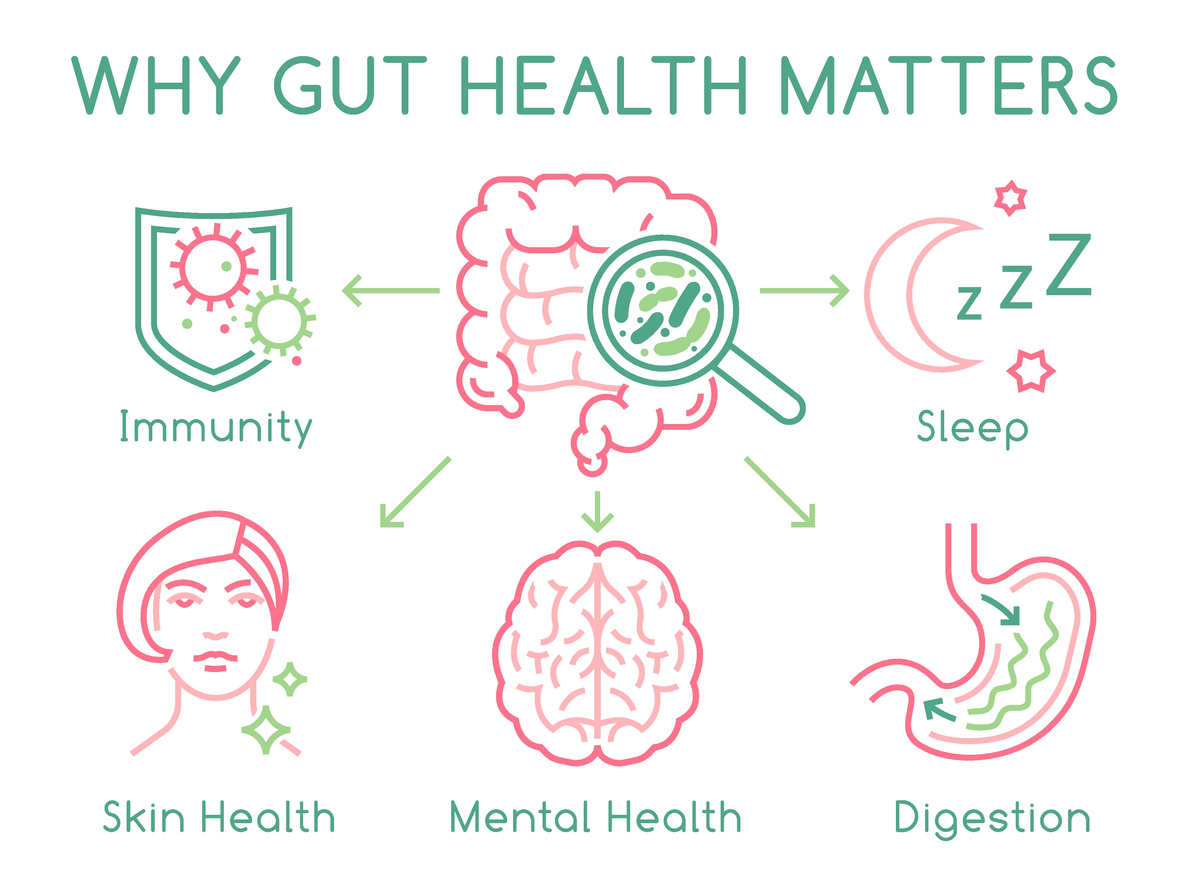
Detoxing Your Digestive System: What’s Best for Your Gut?
Taking care of your digestive system is essential for overall health, and many people look for ways to “detox” their gut. With many options out there, like special diets and supplements, it can feel overwhelming. This confusion can also be risky when deciding what works. The healthiest way to support your digestive health is through a balanced diet full of whole foods that nourish your gut without posing any risks.
Understanding the Role of Your Digestive System
The digestive system is a complex network of organs. It breaks down food, absorbs nutrients, and eliminates waste. The mouth, esophagus, stomach, intestines, liver, pancreas, and gallbladder are key components. This system fuels the body and plays a crucial role in immune defense and hormone regulation. A common misconception is that our bodies require external assistance to remove toxins. In reality, organs like the liver and kidneys are naturally equipped to detoxify the body. They help remove waste products, so many “detox” products aren’t needed.

The Myth of Gut “Detoxes”
The wellness industry promotes many products and routines that claim to detoxify the digestive tract. These range from colon cleanses and laxatives to restrictive diets and supplements. However, scientific evidence supporting the efficacy of these methods is limited.
For instance, colon cleansing procedures, which involve flushing the large intestine with liquids, are sometimes marketed for detoxification purposes. Routine detox before some medical exams may seem necessary, but it’s usually unnecessary. It can lead to risks like dehydration, electrolyte imbalances, and changes in gut flora.
Debunking Popular Gut Detox Methods
Many popular detox methods lack strong scientific support, even though the strategies above are based on evidence.
Colon Cleanses and Enemas
These procedures involve flushing the colon with liquids to remove waste. Routine detox use may seem helpful, but it’s often unnecessary. It can cause problems like dehydration and electrolyte imbalances. The colon is good at getting rid of waste, so regular cleansing isn’t needed for good health.
Juice Cleanses and Fasting
Juice cleanses often involve consuming only fruit and vegetable juices for a set period. They offer vitamins and minerals, but they usually lack protein and fiber. These are important for feeling full and keeping your digestive system healthy. Extended fasting or restrictive diets can slow metabolism and lead to nutrient deficiencies. The body can detoxify itself. However, fasting can cause harm if not done right.
Herbal Teas and Supplements
Certain herbal teas claim to have detoxifying effects. Some herbs help digestion, but others can be strong laxatives. This may cause dependency or unwanted side effects. Many detox supplements for the digestive system have little scientific proof. They can also lead to unwanted side effects.

10 Tips to Support Digestive Health
Instead of using unproven detox methods, try making lasting lifestyle changes. These changes can better support your digestive health. Consider the following strategies:
- Focus on a Fiber-Rich Diet: Fiber is key for regular bowel movements and a healthy gut. Adding different fiber sources like whole grains, fruits, vegetables, legumes, and nuts can help digestion and reduce constipation.
- Stay Hydrated: Water is key for digestion. It helps break down food and ensures waste moves easily through the intestines. Ensuring sufficient hydration can prevent constipation and support overall digestive function.
- Probiotic and Prebiotic Foods: Probiotics are good bacteria that balance the gut. Prebiotics are the food that helps these bacteria thrive. Fermented foods such as yogurt, kefir, sauerkraut, and miso add probiotics. Foods like garlic, onions, and bananas offer prebiotics.
- Engage in Regular Physical Activity: Exercise stimulates intestinal activity, promoting regular bowel movements and reducing symptoms like bloating. Moderate activities like a 30-minute daily walk can positively impact digestive health. Physical activity also helps reduce stress, another factor that can disrupt digestion.
- Manage Stress Levels: Chronic stress can harm digestion and cause problems like irritable bowel syndrome (IBS). Implementing stress-reduction techniques such as mindfulness, meditation, or yoga can alleviate stress-related digestive discomfort. Relaxation techniques can help keep the body balanced, which also improves digestion.
- Ensure Adequate Sleep: Sleep and gut health are interconnected. Poor sleep can disrupt the gut microbiome, while digestive issues can impair sleep quality. Striving for 7–9 hours of quality sleep per night can support overall health and digestion, enabling the body to function optimally and heal.
- Limit Intake of Processed Foods: Highly processed foods often contain additives and lack essential nutrients, which can negatively impact gut health. Emphasizing whole, unprocessed foods can provide the necessary nutrients and fiber to support digestion. Avoiding excessive sugar, artificial sweeteners, and refined grains helps maintain a balanced gut microbiome and improve overall digestive function.
- Include Healthy Fats: Healthy fats, like those found in avocados, nuts, seeds, and olive oil, are crucial for gut health. These fats can reduce inflammation. They also support nutrient absorption and help produce bile, aiding fat digestion. Including these fats in your diet can contribute to overall digestive function.
- Practice Mindful Eating: Paying attention to your body’s hunger and fullness cues can improve digestion. Eating slowly, chewing well, and not overeating can help cut down on bloating, indigestion, and discomfort. Mindful eating can also enhance the body’s ability to properly digest and absorb nutrients.
- Limit Alcohol Consumption: Drinking too much can upset your gut microbiome and irritate your digestive system. This may cause problems like acid reflux and ulcers. Limiting alcohol consumption can help maintain a healthy gut and prevent digestive problems.

Signs Your Digestive System May Need Support
Although the body is naturally equipped to maintain digestive balance, certain signs may suggest that it needs extra support. Be mindful of the following symptoms:
- Persistent Bloating or Gas: Occasional bloating is normal, but chronic discomfort may signal dietary intolerances or imbalances in gut bacteria.
- Irregular Bowel Movements: Consistent constipation or diarrhea can indicate underlying digestive issues requiring attention.
- Unexplained Fatigue: Nutrient malabsorption due to digestive problems can lead to energy deficits and overall fatigue.
- Skin Irritations: Conditions like eczema and acne have been linked to gut health, suggesting a connection between digestive and skin health.
- Supporting Your Gut for Long-Term Health: Rather than seeking out short-term “detox” fads, supporting your digestive system with sustainable habits is the best approach for long-term health. A balanced diet rich in fiber, hydration, probiotics, and regular physical activity will naturally maintain a healthy digestive system.
Contact Us
For good digestive health, focus on lasting lifestyle changes instead of trendy detox diets. A balanced diet, exercise, staying hydrated, and managing stress help support good gut health.
If you’re experiencing ongoing digestive issues or symptoms that may require professional attention, don’t hesitate to reach out. At Gastro MD, we specialize in personalized care to help manage and improve your digestive health. Contact us today to schedule an appointment and discover a care plan tailored to your needs.



